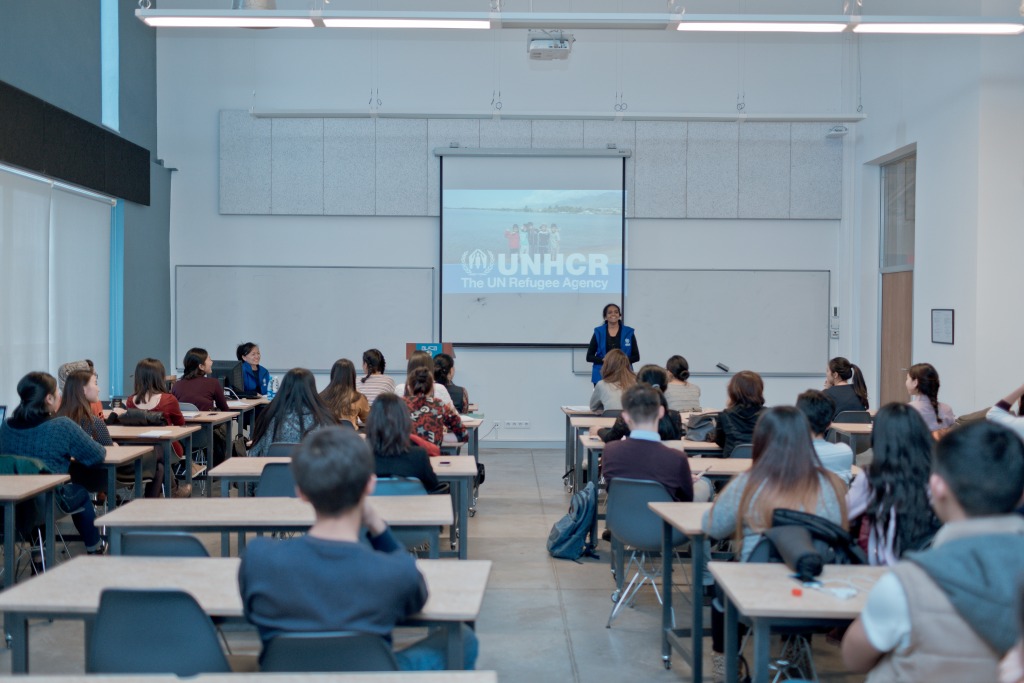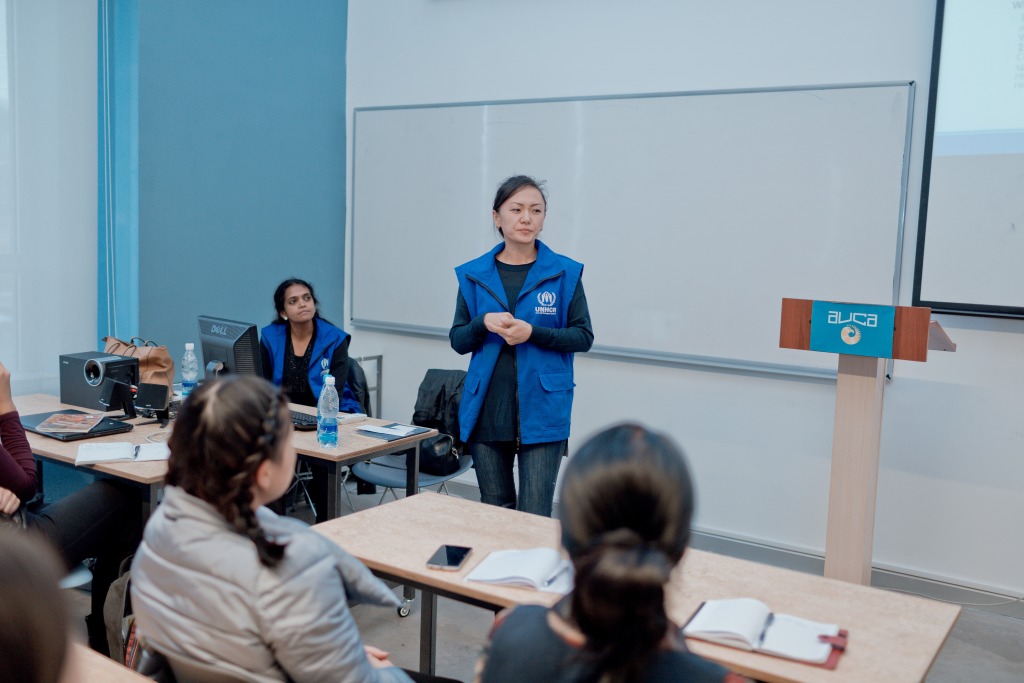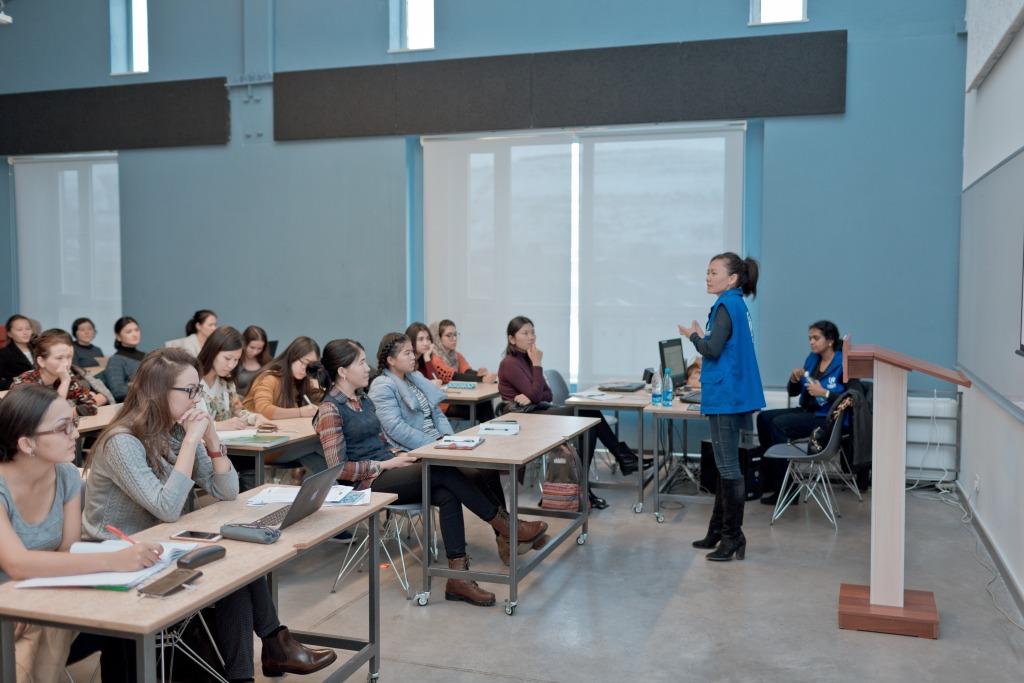October 26, 2016
On 20 October 2016, the American University of Central Asia (AUCA) hosted a lecture by the United Nations High Commissioner for Refugees (UNHCR) to celebrate the 20th anniversary of the signing of the 1951 Refugee convention by the Kyrgyz Republic and to celebrate U.N. Day.

Two representatives from the UNHCR, Dr. Florina Xavier, a Protection Officer, and Gulzina Karimova, a National Program Officer, gave a public lecture entitled "Getting to Know the UNHCR.” The lecturers discussed the work being done to help refugees within Kyrgyzstan to improve their lives specifically by providing access to important human rights and refugee protections.
|
The primary purpose of the UNHCR is to safeguard the rights and well-being of refugees, their ultimate goal is to help find sustainable solutions in rebuilding refugees’ lives in dignity and peace. There are three solutions open to refugees where UNHCR can help: voluntary repatriation; local integration; or resettlement to a third country (for situations where it is impossible for a person to go back home or remain in the host country). Therefore, lecturers and students discussed different cases to understand these three solutions.
|
Voluntary Repatriation is a sustainable solution for the largest number of refugees; however, safe an dignified voluntary repatriation requires the full commitment of the country of origin to help reintegrate its own people.
Local Integration is an option in cases where repatriation is impossible. Finding a home in the country of asylum and integrating into the local community offers a sustainable solution to their plight and the chance to build a new life.
Resettlement is an option for those who cannot return, either because of continued conflict, wars or persecution. However, as it was discussed during the lecture, the success of this solution depends on the accepting country; it has to decide to accept refugees.
The lecture was very interactive. In one game, students had to determine whether or not they were stronger or weaker than other students. The weaker had to open the stronger student’s fist. The purpose of the game was to show that people often do not try to discuss and instead just act.

“We are celebrating the 20th anniversary of the signing of the 1951 Refugee convention by the Kyrgyz Republic. We are happy that this country signed that convention. Not many countries signed it! Also, we are celebrating the U.N. Day. Throughout October we will give some lectures in colleges, institutions, and schools. We create awareness about what we are doing. We acknowledge what the country is doing. We appreciate what it is doing for the refugees—they are not bad people, they are good people who just want to make a good living and live a good life,” said Dr. Florina Xavier, a Protection Officer with the UNHCR.
The most interesting part of the lecture was at the end, when students answered questions about what they could do for refugees. Students were not simply saying, “we can invite them into our homes, raising money, and donating necessary things.” The students offered to help refugees through professional commitments: journalists want to increase awareness, the lawyers are ready to help with legal counsel, and psychologists want to talk to them and support them morally

***
*The UNHCR opened its representation in Kyrgyzstan in 1995 to assist the country in protecting over 20,000 refugees from the civil war in Tajikistan. By now the Kyrgyz Republic has locally integrated half of these refugees by granting them citizenship, while another half voluntarily repatriated to Tajikistan.
In 1996, the Kyrgyz Republic acceded to the 1951 Convention relating to the Status of Refugees and its 1967 Protocol. The country developed a national law on refugees and created a state agency for the determination of refugee status.
UNHCR operational objectives in the Kyrgyz Republic: